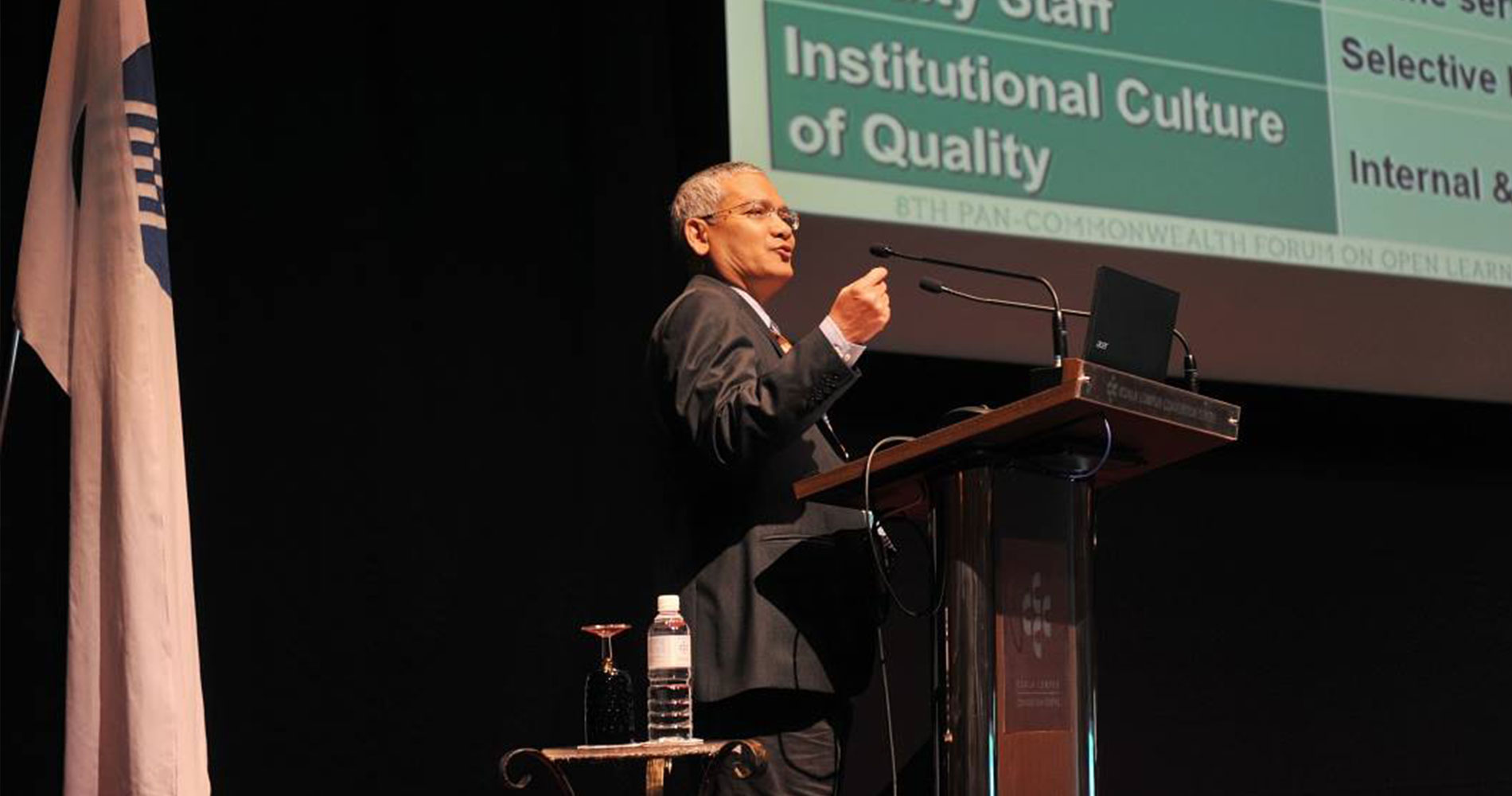
Plenary Hall, 28 November: OUM President/Vice-Chancellor, Professor Dato’ Dr Mansor Fadzil, shared his views on quality and equity in learning in his keynote address with special reference to the United Nations’ Sustainable Development Goals 4 (SDG4).
To achieve the SDG4, he said learning institutions should focus on creating equal opportunities and eliminating gender disparity to allow everyone the chance to apply their knowledge and skills towards promoting sustainable development.
He shared his views on quality from a global perspective as there are currently more than 200 million learners who are pursuing higher education and the number is expected to increase to 263 million by 2025. Learning institutions, he said, should give importance to quality education in order to keep pace with global needs.
On the Incheon Declaration and Framework for Action (Education for All), which is “Towards inclusive and equitable quality education and lifelong learning for all”, Dato’ Mansor stressed that institutions must ensure the best possible framework was put in place for quality education to be realised.
OUM’s initiatives to provide quality e-learning encompass various aspects including curriculum, delivery, assessment, learning materials, facilities, support services, faculty staff and by institutionalising the culture of quality among the campus community, he added.
Equity in education, he said, could be achieved by offering programmes at affordable fees but not at the expense of quality. He also shared his personal observation on initiatives that led to an improved quality culture. Appointing the best individual for a particular job is important because to achieve quality education, programmes need to be taught by those with the right expertise.
He said having a flat organisational structure allows institutions to move towards reducing stratification and his could improve management processes. Dato’ Mansor said outsourcing of ICT requirements and developing built-in standard operating procedures (SOPs) would ensure smoother work flow.